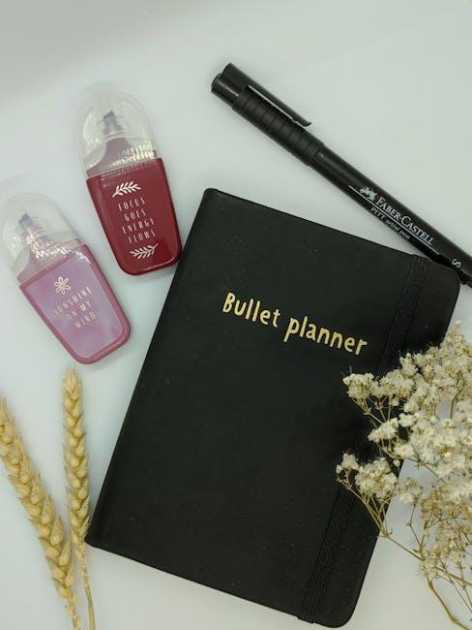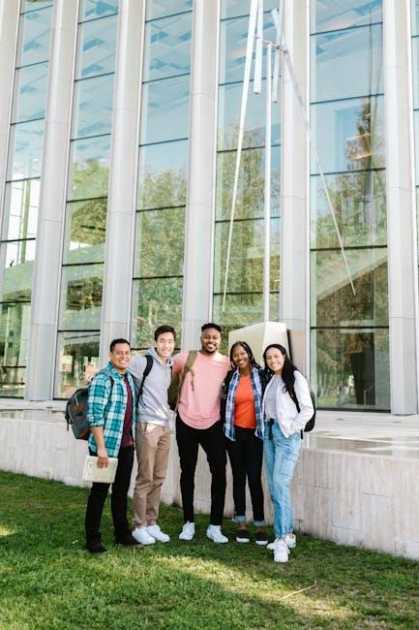as graduation caps soar into the air, so too do dreams of new adventures and opportunities.For many international students in Ireland, the thrill of academic achievement often stirs the hope for a future that extends beyond the classroom. The enchanting landscapes and vibrant culture of Ireland beckon not only as a backdrop for education but also as a promising ground for professional growth. With the Post-Study Work Visa, graduates have a unique chance to transition from student life to the workforce, allowing them to immerse themselves in the dynamic Irish job market. In this article, we will explore the ins and outs of the Post-study Work Visa in Ireland—unraveling the eligibility criteria, application process, and valuable insights to help you not only stay but thrive in this beautiful country after your studies come to an end. Whether you’re dreaming of launching a career in tech, hospitality, or the arts, understanding the pathway to stay and contribute can shape your journey ahead.
Exploring the Post-Study Work visa: Your Gateway to Opportunity in Ireland
The Post-Study Work Visa in Ireland presents an extraordinary opportunity for international graduates to transition smoothly from academia to the workforce.This visa, aimed at those who have completed a relevant qualification in an irish higher education institution, allows you to live and work in Ireland for up to two years. During this time, you can gain invaluable professional experience while exploring the vibrant culture and stunning landscapes of Ireland. Here are some key features of the visa:
- Eligibility: Graduates from recognized Irish institutions with a degree level of NFQ Level 8 or higher.
- Duration: Work visa duration typically lasts for 24 months, dependent on your program length.
- Job Flexibility: You are free to work in any sector, which means you can explore various career paths.
Navigating the application process is straightforward,but it’s crucial to gather necessary documents,such as your degree transcripts and proof of financial means. Upon approval, this visa becomes a stepping stone towards more permanent residency options or employment permits. Here’s a brief comparison of some visa types relevant to international graduates:
| Visa type | Duration | Work rights |
|---|---|---|
| Post-Study Work Visa | Up to 2 years | Any employment opportunity |
| Critical Skills Employment Permit | Up to 2 years | Specific high-demand occupations |
| General Employment Permit | Up to 2 years | Wider range of sectors |
Understanding Eligibility Requirements and Application Processes
Applying for a Post-study Work visa in Ireland begins with ensuring you meet the essential eligibility criteria set forth by the Irish Naturalisation and Immigration Service (INIS). To qualify, you must have graduated from an eligible Irish higher education institution within the past 12 months. Your course duration should have been at least 12 months, leading to a degree or higher, allowing you to demonstrate that you’ve engaged fully in your studies. Additionally, it’s necessary to have a valid passport and comply with the immigration rules of the country. the critical elements include:
- Valid passport: must remain valid for the entirety of your stay.
- Course Duration: must be at least 12 months in length.
- Graduation Confirmation: A formal letter or transcript from your institution confirming graduation.
- Application Fee: Be prepared to pay the required processing fees.
Once you’ve confirmed your eligibility, the application process involves several straightforward steps. Begin by gathering all necessary documentation, including proof of your degree and a cover letter outlining your intentions in Ireland. the application can be submitted online, but remember to print and retain a copy. Upon submission, you’ll need to await a decision from INIS, which typically takes several weeks. To aid in your planning, here’s a simple overview of the timeline involved:
| Step | Duration |
|---|---|
| Gather Documents | 1-2 Weeks |
| Submit Application | Immediate |
| Processing Time | 4-8 weeks |
| Receive Decision | Varies |
Navigating Employment Options: Where to Look for Job Opportunities
Once you’ve secured your post-study work visa in Ireland, the next step is discovering where to find job opportunities that align with your skills and aspirations. While traditional job boards are a great starting point, exploring diverse avenues can significantly broaden your choices. consider tapping into specialized recruitment agencies that focus on your field of expertise. These agencies frequently enough have insider knowledge and access to unadvertised positions that could be the perfect fit for you.
Additionally, leveraging your university’s career services can be a valuable resource.Many institutions offer job fairs, networking events, and workshops that connect students and graduates with potential employers.Don’t underestimate the power of social media; platforms like LinkedIn can be instrumental in building professional relationships and identifying unlisted job openings. Also, joining industry-specific online forums or groups can help you stay updated on trends and opportunities within your desired sector. Remember to maintain a proactive approach in your job search, utilizing every resource at your disposal.
Tips for a Successful Transition from Study to Work in Ireland
Transitioning from academic life to the workforce can be a challenging yet exciting journey. To ease this shift, take advantage of networking opportunities through career fairs, alumni events, and professional associations.Engaging with former classmates and industry professionals not only enhances your job prospects but also helps you gain insight into the local job market. Additionally, consider participating in internships or part-time roles in your field of study, as these experiences can significantly strengthen your CV and provide valuable references.
Understanding the intricacies of the Irish work culture is crucial. Familiarize yourself with local workplace etiquette, which typically values teamwork, open communication, and punctuality. Being adaptable and demonstrating a willingness to learn will set you apart. Moreover, ensure your CV and cover letter reflect your achievements effectively. Keep them concise yet informative, tailoring them to each job application. Below is a simple comparison table highlighting key aspects to focus on in your transition:
| Focus Area | Action |
|---|---|
| Networking | Attend events & connect on platforms like LinkedIn |
| Local Etiquette | Learn workplace customs & values |
| CV/Resume | Tailor to each application & highlight relevant experience |
| Continuous Learning | Engage in workshops or online courses |
Q&A
Q1: What is the Post-Study Work Visa in Ireland?
A1: The Post-Study Work Visa in Ireland, also known as the Third Level Graduate Scheme, is an opportunity for international students who have successfully completed their degree in Ireland to remain in the country to work. This visa allows graduates to gain practical experience in their field of study for up to two years, depending on the level of their qualification. This initiative emphasizes the value of skills and knowledge acquired during studies, helping to bridge the gap between education and full-time employment.
Q2: Who is eligible for the Post-Study Work Visa?
A2: To be eligible for the Post-Study Work Visa, you must have graduated from an eligible Irish higher education institution with a recognized qualification at least at the level of a bachelor’s degree.The programme should be at least 2 years in duration. It’s vital that you apply for the visa within six months of receiving official confirmation of your graduation to ensure a smooth transition from student to professional life.
Q3: How long can I stay in Ireland under this visa?
A3: The duration of your stay depends on the level of your qualification. Graduates with a Level 8 qualification (honours degree) can apply for a visa that allows them to stay for two years. Those with a Level 9 qualification (master’s degree) can avail of a visa for up to 24 months as well, but there might potentially be pathways for certain types of Level 10 (PhD) graduates that offer extended options.
Q4: What types of jobs can I apply for during this period?
A4: During your stay on a Post-Study Work Visa, you have the freedom to work in any job across various sectors. Whether you’re seeking opportunities in technology, healthcare, business, or arts, the possibilities are wide-ranging. Keep in mind, though, that your role should ideally align with your academic background, as gaining relevant experience will enhance your professional profile for future employment.
Q5: How do I apply for the Post-Study Work Visa?
A5: The application process for the Post-Study Work Visa involves several key steps. First,ensure you have completed your studies and received formal confirmation of graduation. Next, you will need to gather supporting documents, including proof of qualifications, passport, and a statement of your intention to reside in Ireland. Once your paperwork is ready, submit your application online through the Irish Naturalisation and Immigration Service (INIS) website. Pay close attention to the guidelines they provide for a successful application.
Q6: Can I switch from a Post-Study work Visa to another type of visa?
A6: Yes, you can transition from a Post-Study Work Visa to another type of visa. If during your time in Ireland you secure a job offer that aligns with your career goals, you may be eligible to apply for a Critical Skills Employment Permit or another relevant work permit, provided you meet the specific requirements of that visa. It’s important to plan ahead, as securing a new visa typically requires employer sponsorship.
Q7: What advice do you have for recent graduates considering this visa?
A7: For recent graduates, the Post-Study Work Visa is a golden opportunity to enhance your career prospects. Network actively—attend industry events, engage with alumni, and utilize platforms like LinkedIn to connect with professionals in your field. Building local contacts can lead to job opportunities that may not be widely advertised. Additionally,keep your CV updated and tailored for each application,ensuring you highlight your academic qualifications and any relevant experiences. Embrace the experience,allow yourself to learn,grow,and enjoy your time in Ireland!
Q8: What resources are available for graduates seeking employment in Ireland?
A8: Several resources are readily available to assist graduates in their job search. Websites like Indeed, Glassdoor, and IrishJobs.ie offer job listings tailored to various industries. Universities frequently enough provide career services, including workshops, resume reviews, and job fairs. Additionally, professional organizations and networks in your field can offer invaluable resources and mentorship opportunities—every connection counts on your journey to securing employment in ireland!
The Way Forward
As you embark on the next chapter of your journey in Ireland, the Post-Study Work Visa serves as a valuable bridge to your professional aspirations. This opportunity not only allows you to apply the skills and knowledge you’ve gained during your studies but also immerses you deeper into the vibrant culture that makes Ireland a unique place to live and work. By understanding the nuances of the visa process and the varied paths it offers, you’re well-equipped to navigate the transition from student to professional.As you step out into the workforce, remember that the experience you gain in this beautiful country will enrich not only your career but also your personal growth. Embrace this time, explore new possibilities, and forge connections that will last a lifetime. The journey ahead is filled with potential—now is the time to take your first steps toward making your mark in Ireland.


















